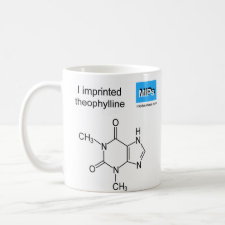
Authors: Lee HY, Kim S
Article Title: Grafting of molecularly imprinted polymers on iniferter-modified carbon nanotube.
Publication date: 2009
Journal: Biosensors and Bioelectronics
Volume: 25
Issue: (3)
Page numbers: 587-591.
DOI: 10.1016/j.bios.2009.03.040
Alternative URL: http://www.sciencedirect.com/science/article/B6TFC-4W04KG2-2/2/b23e8b93cb70ef0f9351104d9542f71b
Abstract: Molecularly imprinted polymers (MIPs) were grafted on iniferter-modified carbon nanotube (CNT). Tween 20 was first immobilized on CNT by hydrophobic interactions. The hydroxyl-functionalized CNT was modified by silanisation with 3-chloropropyl trimethoxysilane. The iniferter groups were then introduced by reacting the CNT-bound chloropropyl groups with sodium N,N-diethyldithiocarbamate. UV light-initiated copolymerization of ethylene glycol dimethacrylate (crosslinking agent) and methacrylic acid (functional monomer) resulted in grafting of MIP on CNT for theophylline as a model template. MIPs grafted on CNT were characterized with elemental analysis, scanning electron microscopy, and thermogravimetric analysis. The theophylline-imprinted polymer on CNT showed higher binding capacity for theophylline than non-imprinted polymer on CNT and selectivity for theophylline over caffeine and theobromine (similar structure molecules). The data of theophylline and caffeine binding into the theophylline-imprinted polymer correlated well with the Scatchard plot. These MIPs on CNT can potentially be applied to probe materials in biosensor system based on CNT field effect transistor
Template and target information: theophylline
Author keywords: Molecularly imprinted polymers, Carbon nanotube, grafting, iniferter



Join the Society for Molecular Imprinting

New items RSS feed
Sign-up for e-mail updates:
Choose between receiving an occasional newsletter or more frequent e-mail alerts.
Click here to go to the sign-up page.
Is your name elemental or peptidic? Enter your name and find out by clicking either of the buttons below!
Other products you may like:
 MIPdatabase
MIPdatabase









